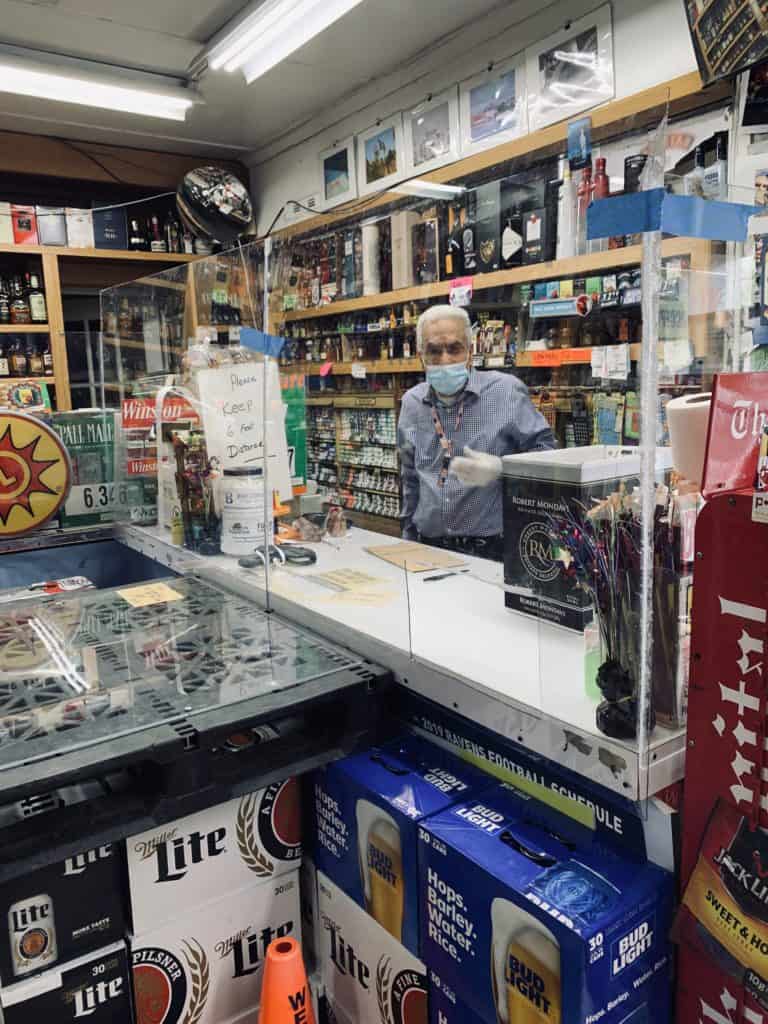Where do we get our food? Who stocks our local store shelves? Who rings us up at the cash register? Who bags our groceries? Who is deemed an essential worker in the age of the coronavirus?
It is elderly shop owners who are stacking cans of soup, packing bottles of juice and soft drinks into coolers, making sure we have bread, milk, eggs and our local newspaper. It is people with underlying health conditions who are reaching out to suppliers to ensure that shelves are fully stocked with toilet paper, detergent, hand soap, chips, cookies and alcohol for you. It is immigrants putting their lives at risk to serve us, their community and our country at large. We all rely on people like my parents, owners of a small grocery store in Maryland. We need them to ensure that we all get through this crisis and they need our support in return.
Black, Brown, immigrant, low and middle-income – this is the demographic of those working at our grocery stores. They are providing food and necessities to help their communities survive. These workers don’t have the privilege of working from home as I do. Like many of us do. Our livelihoods are not dependent upon standing in the middle of the possibility of sickness and death. We can barricade ourselves in our homes and still get a paycheck. That is what privilege looks like.
The elderly, Black and Brown people, and those with pre-existing health conditions fare the worst when hit with the coronavirus. There have been recent reports of grocery workers dying of coronavirus. Workers from Walmart, Trader Joe’s and Giant, in particular. Infections and death tolls are rising globally every day.
My parents manage a grocery store and they are also classified as part of a vulnerable population. It is recommended that those with underlying health issues and those above the age of 65 stay home. This is one of many contradictions that is difficult to understand.
My parents interface with a hundred or more customers every day making social distancing something that does not work in their business. Like so many working-class Americans, my parents are daily faced with the reality of risking exposure to a virus with unacceptable levels of fatality or risking the closure of their small business which, at this stage of their lives, would mean the death of their business.
We, as a country, are awakening to the reality that those we deem essential are too often not provided essential items like a living wage, sick days, health insurance, child care or some type of economic-financial bridge during crises like these. It is ironic that those who are provided for the least in our society are looked upon the most to provide the essential services needed to keep our economy going.
I’d like to think my parents are making a conscious choice to serve their community. This makes the daily stress of watching them put their health at risk have some type of socially redeeming value.
A recent New York Times article termed grocery workers “a new class of emergency medical workers.” Yet, I also remember the 20-year struggle to pass the 9/11 victim compensation fund, money aimed to help the heroes that risked their lives with too many dying from the effects of their service years later. I am left with the hope that our country will do better today than we have in past crises, in serving those who serve us, but as I look at my elderly parents with high blood pressure and diabetes stacking shelves and selling food to customers, I am filled with doubt.
Monica Grover is the Special Assistant to NCRC’s Chief of Race, Wealth and Community
Photo courtesy of Monica Grover.



